
This monthly series brings together research organizations from across New Mexico to share and explore groundbreaking research happening within the state. Participating institutions include UNM Main Campus and Health Sciences, New Mexico State University, New Mexico Tech, Sandia National Laboratories, and Los Alamos National Laboratories.
Sessions are held on the 1st Wednesday of the month, from 1 – 2 pm. Please join our mailing list or email us to receive information on upcoming sessions.

David Quinn, MD
Professor, Department of Psychiatry & Behavioral Sciences
Here Today, Gone Tomorrow? Rapid-Acting Neuromodulation and Neuroplastogens for Mental Health Disorders
Davin Quinn, MD, FACLP, is a Professor of Psychiatry with Tenure at the University of New Mexico School of Medicine, and is the Vice Chair for Adult Clinical Services, the Division Chief of Behavioral Health Consultation and Integration, and the director of the UNM Neuropsychiatry Clinic and Transcranial Magnetic Stimulation Service. Dr. Quinn is board certified in adult psychiatry, consultation-liaison psychiatry, behavioral neurology and neuropsychiatry, and brain injury medicine.

Jeremy Hogeveen, PhD
Associate Professor, Department of Psychology
The Science of Choice—Watching the Brain Make Difficult Decisions
Should you return to your favorite restaurant, or try the new place down the street? Dr. Jeremy Hogeveen is a cognitive neuroscientist and Associate Professor of Psychology at UNM, who uses brain imaging tools to study this exact dilemma. Known as the “explore-exploit” tradeoff in reinforcement learning—this motivational conflict drives humans and other animals to frequently seek out novel, uncertain rewards instead of sticking with safe, familiar habits. Dr. Hogeveen will discuss the brain mechanisms underlying these difficult choices to explore or not, illustrating the “rise and fall” of exploration from adolescence through old age, and how this decision-making balance is disrupted in neurological and psychiatric disorders.
Join Zoom
Password: Innovation

Michael Mandell, PhD
Associate Professor, Molecular Genetics and Microbiology
Mentoring Director, AIM
Dr. Mandell received a B.A. degree in Biology with a concentration in Environmental Science from Carleton College (Northfield, Minnesota) in 1999. After several years working as a research technician, he attended graduate school at Washington University in Saint Louis (Missouri) and received his Ph.D. in Biology and Biomedical Science (Microbial Pathogenesis) in 2011. He then completed four years of postdoctoral training in cell biology at the University of New Mexico. He joined the faculty at University of New Mexico School of Medicine in 2015.

Judy Cannon, PhD
Professor, Molecular Genetics and Microbiology
Core Facility Director, AIM Center
Dr. Cannon obtained her B.A. from the University of California at Berkeley in both Molecular Cell Biology and Political Science (1995), followed by an M.S. from San Francisco State University and a Ph.D. in Immunology from the University of Chicago (2003). She completed her postdoctoral training at the University of Chicago and joined the faculty at University of New Mexico School of Medicine in 2010.
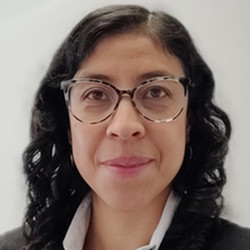
Monica Rosas-Lemus, PhD
Assistant Professor, Molecular Genetics and Microbiology
Dr. Rosas-Lemus obtained her B.S. in Chemistry from Universidad Nacional Autónoma de México and her M.S. and Ph.D. in Biochemistry from the same institution. She completed a postdoctoral fellowship at the Illinois Institute of Technology and a second postdoctoral fellowship at Northwestern University before joining the faculty at University of New Mexico School of Medicine in 2023.
PIVOT (Promoting Innovative and Vital Opportunities for Transformation) is a prosecutor-led community-based diversion and deflection program for youth and young adults and community-engaged research project with the First Judicial District Attorney's Office, Moving Arts Española, Santa Fe County Uplift Youth, and other community partners. This panel session will describe the PIVOT program and key lessons learned for community-engaged research.

Jen Perillo, Ph.D.
Associate Professor
Department of Psychiatry and Behavioral Sciences

Jennifer Padgett Macias
Chief Deputy District Attorney
First Judicial District Attorney’s Office

Lisa Broidy, Ph.D.
Professor and Chair
Department of Sociology

Kiran Bhaskar
PhD, Professor
Department of Molecular Genetics & Microbiology / Department of Neurology
Kiran Bhaskar is a Tenured Professor in the Departments of Molecular Genetics & Microbiology and Neurology at the University of New Mexico. He is the Co-Director of NIH-funded P30 New Mexico Alzheimer’s Disease Research Center (NM ADRC) and Scientific Co-Founder of TheraVac Biologics LLC. He completed his Ph.D. in India and post-doctoral research at the University of Iowa and the Cleveland Clinic Foundation before starting as an Assistant Professor at the University of New Mexico in 2012. Dr. Bhaskar’s research focuses on understanding brain inflammation relevant to Alzheimer’s disease and related Dementias (AD/ADRDs). Several NIH grants have continuously funded his work for the past 15 years, suggesting a pathological feed-forward cross-talk exists between brain inflammation and tangle pathology, which drives AD. His team has made significant progress recently in developing vaccines for AD, which will be moving to Phase Ia/1b clinical trials next year.

Jason P. Weick
PhD, Associate Professor
Department of Neurosciences
Jason Weick is an Associate Professor in the Department of Neurosciences in the School of Medicine at UNM. Dr. Weick completed his PhD at the University of Minnesota-Twin Cities and postdoctoral training at the University of Wisconsin-Madison before joining UNM in 2012. His research focuses on understanding the molecular mechanisms underlying protein trafficking and processing in neurons, and how this regulates excitability. His lab studies these processes both under normal conditions, and during the course of neurodegenerative diseases such as Alzheimer’s disease (AD). By leveraging cutting-edge techniques such as neurons induced from human stem cells and proximity-based proteomics, his lab aims to identify novel mechanisms of Amyloid Precursor Protein regulation and early organelle dysfunction during AD progression.
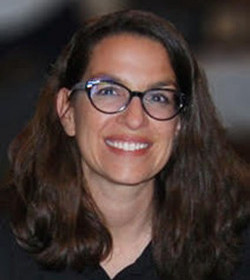
Michaelann Tartis
PhD, Professor, Chemical Engineering
New Mexico Tech
Michaelann Tartis is a professor of Chemical Engineering at New Mexico Tech. She holds a BS in Chemical Engineering from New Mexico Tech and a PhD in Biomedical Engineering with postdoctoral training in Bioimaging, both from UC Davis. Her research spans biomaterials for targeted drug delivery and traumatic brain injury modeling. Her lab group designs mechanically biofidelic human head models enabling dynamic imaging during impact, characterizes these materials, and incorporates living cerebral organoids to quantify tissue deformation. This work links mechanical loading to biological outcomes to identify injury mechanisms and thresholds, ultimately informing protective gear design and preventative measures for military and sport applications.
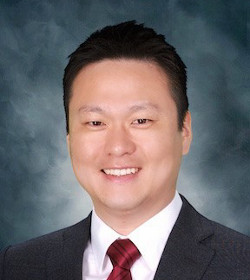
Donghyeon Ryu
PhD, Associate Professor
Department of Mechanical Engineering, New Mexico Tech
Donghyeon Ryu is an associate professor in the Department of Mechanical Engineering at New Mexico Tech (August 2014 – present) and a co-founder and Chief Scientific Officer of RD Health Sensing (November 2020 – present). He obtained a Ph.D. in the Department of Civil and Environmental Engineering in September 2014 and M.S. in the Department of Mechanical and Aerospace Engineering in March 2014 from the University of California, Davis. Dr. Ryu is active in research on design of multifunctional materials and metamaterials for wearable sensing technologies and self-sustainable infrastructures; structural health monitoring; and energy harvesting. His research has been sponsored by NASA, NSF, and others. He is an NSF RII-Track 4@NASA Ames Research Center Research Fellow and ASCE ExCEEd Teaching Workshop Fellow.

Department of Internal Medicine & Member of Comprehensive Cancer Center
Dr. Prajakta Adsul is an Assistant Professor of Internal Medicine and Member of the University of New Mexico Comprehensive Cancer Center, and the Inaugural Director of UNM's Center for Advancing Dissemination and Implementation Science. A primary care physician by training and former Cancer Prevention Fellow at the National Cancer Institute, her research uses community-based, participatory methods to design and implement pragmatic interventions that address cancer prevention and control challenges in medically disadvantaged populations both locally and globally.

UNM School of Administration
Dr. Nick Edwardson’s research focus is innovation implementation and comparative effectiveness in healthcare, with a particular interest in organizational economics. He currently serves as Chair of the Academy of Management’s Health Care Management Division. Nick received a PhD in Health Services Research from Texas A&M University and an MS in Public Policy & Management from Carnegie Mellon University. He served in the U.S. Peace Corps in Nicaragua.
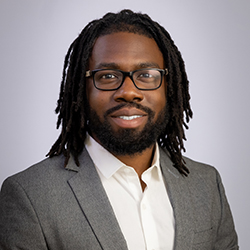
College of Population Health
Dr. Verlin Joseph is an Assistant Professor in the College of Population Health at the University of New Mexico Health Sciences Center. He received his PhD in Epidemiology from the University of Florida and completed a postdoctoral fellowship at the Center on Alcohol, Substance use, And Addictions (CASAA) at UNM. His research explores the intersection of shame, substance use, and criminal legal outcomes. In this talk, Dr. Joseph will describe quantitative and qualitative approaches to measuring shame in substance use disorder (SUD) settings. He emphasizes the role of measurement invariance and qualitative insights in creating valid, generalizable tools to inform stigma-reducing interventions.

Department of Internal Medicine; Annemarie Madaras, MA, LPCC; Christina Phillips, MA
The Southwest Clinical Trial Node (SWCTN) at the University of New Mexico, first funded in 2019, is part of a national clinical trials network of 15 other sites funded by the National Institute on Drug Abuse (NIDA). The mission is to conduct research across prevention, treatment, recovery, and public health; to advance science on drug use and addiction; and to apply knowledge to improve health. This year SWCTN successfully applied for ongoing funding through 2032! NIDA’s goals for the network include fostering collaborations between academic centers and community provider, advancing substance use treatment and prevention, conducting large multi-site trials and research, and promoting evidence-based care for all communities. Dr. Kimberly Page is Co-Principal Investigator (PI) of the SWCTN and is a Distinguished Professor in the Department of Internal Medicine. She trained in epidemiology and biostatistics and has been doing research in infectious diseases and substance use for 30 years. Her Co-PI is Adela Grando, PhD, a health informaticist at Arizona State University. Dr. Page will describe the overall structure of the SWCTN and how protocols get done! The Node is also led and managed by Annemarie Madaras and Christina Phillips. They will describe how the day-to-day activities work: the teams that are part of a trial and how we manage these large protocols. Learn how to get involved, including submitting proposals, working on trials, accessing CTN data, and more!

Senior Scientist and Fellow, Bioscience Division, Microbial and Biome Sciences Group (B-IOME), Los Alamos National Laboratory
Babs Marrone is a Scientist, Laboratory Fellow, and AAAS Fellow in the Microbial and Biome Sciences group (Bioscience Division) at Los Alamos National Laboratory. She received a B.A. from Hampshire College, a Ph.D. from Rutgers University, and conducted postdoctoral research at the University of Wisconsin. Her research career has spanned biotechnology for biomedicine, bioforensics, biosecurity, and bioenergy applications. Her current research is focused on advanced biomanufacturing of biofuels and bioproducts. She is specifically interested in applying AI/ML tools to optimize biomanufacturing processes and to accelerate innovative biological solutions to address health and environmental challenges, climate resilience, and national security needs.

Senior Scientist and Fellow, Bioscience Division, Genomics and Bioanalytics Group (B-GEN), Los Alamos National Laboratory
Dr. Chain has served as the Microbial Genomics group leader at LLNL (2000-2009) and has been responsible for several different teams at the Joint Genome Institute (2000-2013), before coming to LANL (2009-present) to develop a microbiome science portfolio as well as to spearhead the bioinformatics and genomic data analytics teams in the Biosciences Division at LANL. He leads several projects at LANL exploring soil microbial ecology, pathogen genomics and evolution, and the application of bioinformatics and machine learning in biology. His interests span the universe of microbes, from viruses and bacteria to fungi, as well as the interactions amongst themselves and with their hosts.

Professor, Department of Pediatrics
Rebecca Girardet is a Professor in the UNM Department of Pediatrics Section for Child Safety and Well-Being at the University of New Mexico, where she serves as Program Director for the Child Abuse Pediatrics fellowship training program and as a convener of the Child Health Grand Challenge. She has conducted research and authored peer-reviewed articles on several maltreatment topics, including STI diagnostic methods, HIV prophylaxis, the epidemiology of child maltreatment, and unmet healthcare needs. As convener for the UNM Child Health Grand Challenge Team, she oversees multiple research projects on child maltreatment prevention.

Department of Geography and Environmental Studies
Yujian Lu is a PhD candidate in the Department of Geography and Environmental Studies at the University of New Mexico. His research focuses on GIScience, social media data analysis, and American housing segregation. Through his work, he seeks to leverage both traditional and social media data to explore human behavior and urban development problems from a geographical lens. His dissertation examines the enduring effects of historical redlining practices on contemporary society in the United States."

Associate Professor, Internal Medicine
Steven Bradfute, Ph.D., is an Associate Professor at the University of New Mexico Health Sciences Center in the Department of Internal Medicine. Dr. Bradfute received his Ph.D. in Immunology from Baylor College of Medicine and completed a postdoctoral fellowship at the U.S. Army Medical Research Institute of Infectious Diseases (USAMRIID), where he studied immune responses to hemorrhagic fever viruses. Dr. Bradfute started his lab in 2013 and his research focuses on immunity, therapeutics, host-pathogen interactions, and vaccine development for emerging and re-emerging RNA viral pathogens that cause human disease, including hantaviruses, arenaviruses, filoviruses, and alphaviruses.
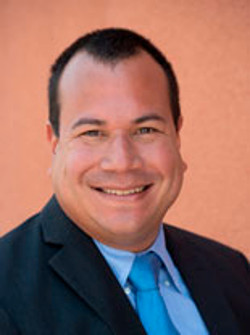
Professor and Regents' Lecturer, Civil, Construction & Environmental Engineering
José Cerrato, PhD, is a Professor and Regents’ Lecturer in the UNM School of Engineering. He is also the director of the UNM METALS Superfund Research Center and UNM Climate and Health allied Network for Geospatial and Environmental Science (CHANGES) Center. His presentation will focus the extraction of critical minerals and impacts on communities. Critical minerals are essential to sustain the growing needs of our society. Extraction of critical minerals is necessary for various technologies ranging from energy to electronics. However, extraction may also result in the release of elevated concentrations of toxic metals into water and soil. This represents a concern for the health of communities. Uranium mining legacy in tribal lands in the Southwestern US has resulted in numerous sites with elevated concentrations of uranium, arsenic, and other metal mixtures. The challenges for extraction of critical minerals in ways that benefit communities and minimize negative impacts will be discussed.

Assistant Professor, Chemistry and Biochemistry, New Mexico State University
Cory Windorff is an Assistant Professor in the Chemistry and Biochemistry Department at NMSU. Prof. Windorff completed his PhD at the University of California-Irvine, which included a one year internship at Los Alamos National Lab. Cory undertook postdoctoral studies at Florida State University and the Georgia Institute of Technology before joining the faculty at NMSU in August 2020. Cory's research focuses on the synthesis and reactivity of f-element compounds with a focus on bonding and electronic structure. The f-elements (the actinides and the rare earths) play a critical role in clean energy generation, defense applications, medicine, and more.
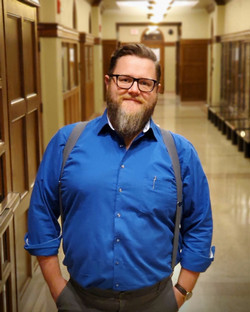
Associate Professor, Chemistry & Biochemistry, New Mexico State University
Chris Baker is an associate professor in the Department of Chemistry and Biochemistry at New Mexico State University. Dr. Baker earned a Ph.D. in analytical chemistry in 2012 from Florida State University, and was a postdoctoral researcher at the University of Arizona (2012 – 2014) and Sandia National Labs, Livermore (2015). He was an assistant professor at the University of Tennessee (2015 – 2020) before moving to NMSU in 2020. The Baker Bioanalysis Lab applies expertise in separation science and microfluidics to develop technologies that enable challenging measurements in biochemistry and chemical neuroscience. Recent efforts have focused on the integration of capillary electrophoresis with Taylor dispersion analysis to achieve biomolecular size determinations from nL samples at nM concentrations. The lab also develops technologies for ex vivo brain tissue culture, working towards a brain-on-chip model applicable to neurodegenerative and neurodevelopmental disorders.
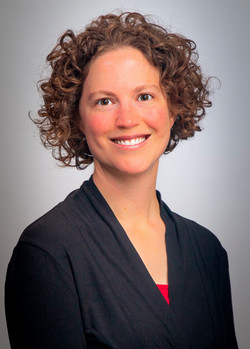
Assistant Professor, Molecular Genetics & Microbiology
Alison Kell is an Assistant Professor in the Department of Molecular Genetics and Microbiology in the School of Medicine at UNM. Dr. Kell completed her PhD and postdoctoral training at the University of Washington before joining UNM in January 2020. Her research focuses on understanding the virus-host molecular interactions that drive severe disease and asymptomatic persistence of hantaviruses in human or rodent reservoir hosts, respectively. Applying a comparative immunology, genomics, and proteomics approach, her lab aims to identify critical interactions during hantavirus infections that lead to fatal immune activation in human hantavirus patients.
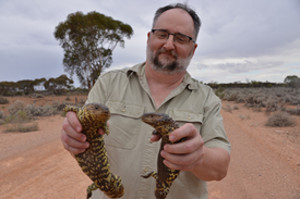
Distinguished Professor, Biology
Rob Miller is a Distinguished Professor of Biology who has been at the University of New Mexico since 1994. He is a founding member and current Director of the Center for Evolutionary & Theoretical Immunology at UNM. In addition, Rob has served as a Program Director and, more recently, the Deputy Division Director of the Division of Integrative Organismal Biology in the Directorate for Biological Science at the U.S. National Science Foundation. Rob is an immunologist interested in evolution of the vertebrate adaptive immune system. He has worked with a wide variety of species including amphibians, reptiles, birds, and mammals, with particular focus on the marsupials, monotremes and squamate reptiles. Most recently his research has focused on unconventional T cell receptors and novel T cell subsets found in species other than humans and mice, and the evolution of antibody genetics and structure.
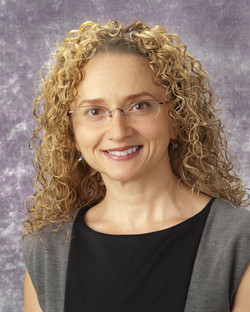
Professor, Department of Internal Medicine, Director, Center for Healthcare Equity in Kidney Disease (CHEK-D), Director, Faculty Research Development, UNM Health Sciences – Center for Healthcare Equity in Kidney Disease (CHEK-D): Enhancing Equity Across the Kidney Care Continuum
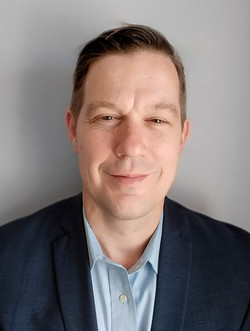
Professor, UNM School of Law
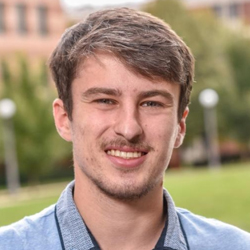
Sandia National Laboratories
Oleg Davydovich is a Postdoctoral Researcher at Sandia National Laboratories. His doctoral research centered on developing innovative strategies for the programmed deconstruction of sustainable polymeric materials. Oleg collaborates with Michael Kent in the Department of Environmental Systems and Biology. Their research is dedicated to exploring chemical conversion methods for commercial polyethylene materials, aiming to transform them into valuable chemical feedstocks. A key aspect of their work involves designing more sustainable chemical conversion processes that facilitate the deconstruction of polyethylene under oxidative conditions. In addition to his work in the environmental systems biology group, Oleg also engages with the Organic Materials Science Department, where he focuses on the energy-efficient production of high-performance polymeric materials. His multidisciplinary approach combines insights from both environmental science and materials engineering to advance sustainable practices in polymer chemistry.

Sandia National Laboratories
Pat Finley is a Computer Scientist at Sandia National Laboratories. His research focuses on computational models and artificial intelligence (AI) approaches to advance healthcare, global public health, and computational biology. His research teams developed and fielded large-scale epidemiological and healthcare delivery models in response to global pandemic influenza, Ebola, and COVID-19 outbreaks. Sandia teams are collaborating with the VA and other national laboratories in precision medicine research applying deep-learning patient-trajectory models to predict risk for suicide, CVD, and metabolic diseases in US Veterans. Pat also leads AI/ML research on remote monitoring of observable symptom patterns indicative of changes in disease severity and progression.
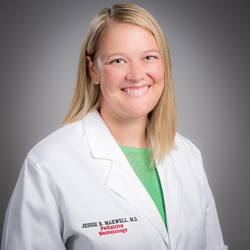
Associate Professor, Pediatrics and Neurosciences

Distinguished Professor, Psychology

Professor, Pharmaceutical Sciences

Professor, Department of Chemical
and Biological Engineering
Larissa Myaskovsky, PhD
Director of Faculty Research Development
Kara McKinney, MA
Associate Director for Research Development
Contact Us:
Office: 505-272-0885
Email: HSC-RDO@salud.unm.edu
Physical Location:
Health Sciences and Services Building
Mailing address:
MSC 08 4560
1 University of New Mexico,
Albuquerque, NM 87131